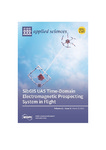Mostrar o rexistro simple do ítem
Assessment of Cold Ironing and LNG as Mitigation Tools of Short Sea Shipping Emissions in Port: A Spanish Case Study
| dc.contributor.author | Martínez López, Alba | |
| dc.contributor.author | Romero, Alejandro | |
| dc.contributor.author | Orosa, José A. | |
| dc.date.accessioned | 2021-04-05T14:23:34Z | |
| dc.date.available | 2021-04-05T14:23:34Z | |
| dc.date.issued | 2021 | |
| dc.identifier.citation | Martínez-López, A.; Romero, A.; Orosa, J.A. Assessment of Cold Ironing and LNG as Mitigation Tools of Short Sea Shipping Emissions in Port: A Spanish Case Study. Appl. Sci. 2021, 11, 2050. https://doi.org/10.3390/app11052050 | es_ES |
| dc.identifier.issn | 2076-3417 | |
| dc.identifier.uri | http://hdl.handle.net/2183/27656 | |
| dc.description.abstract | [Abstract] By the end of 2025 European ports are required to provide (Directive 2014/94/EU) facilities to ensure the Liquefied Natural Gas (LNG) use and on-shore electricity supply for vessels (Cold Ironing—CI). Even though this involves considerable port investment, many uncertainties about CI and LNG performance exist because their application depends on vessel operators’ willingness. Additionally, lag times for CI connection/disconnection along with methane emissions from LNG undermine their feasibility for Short Sea Shipping (SSS). Since, among the SSS aims are the reduction in berthing times and its effectiveness for-inter-islands’ traffic where, land electricity grids are frequently dependent on the fuel burning generation by penalizing the CI performance. This paper introduces a calculation method to evaluate the pollution savings in monetary terms by CI and LNG use in SSS. The method is applied to three European routes by testing the environmental performance of two fleets: feeder and Ro-Pax vessels. The results show that feeders reach higher environmental improvements by using port mitigation than Ro-Pax vessels. Additionally, the need for ensuring the sustainability of on-shore grids before the CI implementation was evinced, especially in insularity frameworks, where the environmental benefits from LNG use proved to be more effective | es_ES |
| dc.description.sponsorship | This publication has been supported by the H2020 project FLOTANT, which is coordinated by the Oceanic Platform of the Canary Islands (PLOCAN). The project has received funding from the European Union’s Horizon 2020 research and innovation program under grant agreement No. 815289 | |
| dc.language.iso | eng | es_ES |
| dc.publisher | MDPI | es_ES |
| dc.relation | info:eu-repo/grantAgreement/EC/H2020/815289 | es_ES |
| dc.relation.uri | https://doi.org/10.3390/app11052050 | es_ES |
| dc.rights | Atribución 4.0 Internacional | es_ES |
| dc.rights.uri | http://creativecommons.org/licenses/by/4.0/ | * |
| dc.subject | Short sea shipping | es_ES |
| dc.subject | Cold ironing | es_ES |
| dc.subject | On-shore power supply | es_ES |
| dc.subject | LNG | es_ES |
| dc.subject | Port sustainability | es_ES |
| dc.title | Assessment of Cold Ironing and LNG as Mitigation Tools of Short Sea Shipping Emissions in Port: A Spanish Case Study | es_ES |
| dc.type | info:eu-repo/semantics/article | es_ES |
| dc.rights.access | info:eu-repo/semantics/openAccess | es_ES |
| UDC.journalTitle | Applied Sciences | es_ES |
| UDC.volume | 11 | es_ES |
| UDC.issue | 5 | es_ES |
| UDC.startPage | 2050 | es_ES |
| dc.identifier.doi | 10.3390/app11052050 |
Ficheiros no ítem
Este ítem aparece na(s) seguinte(s) colección(s)
-
GI-EeP - Artigos [21]
-
OpenAIRE [342]






